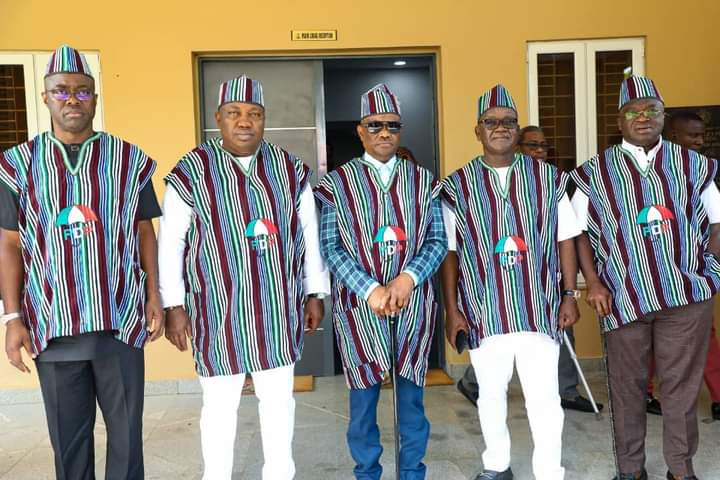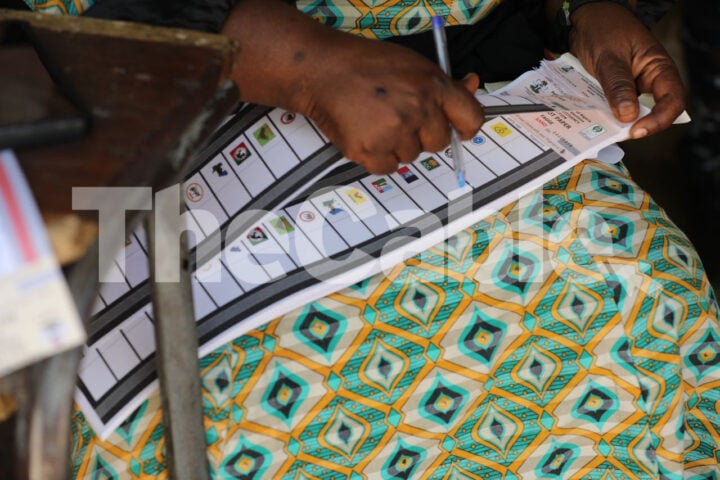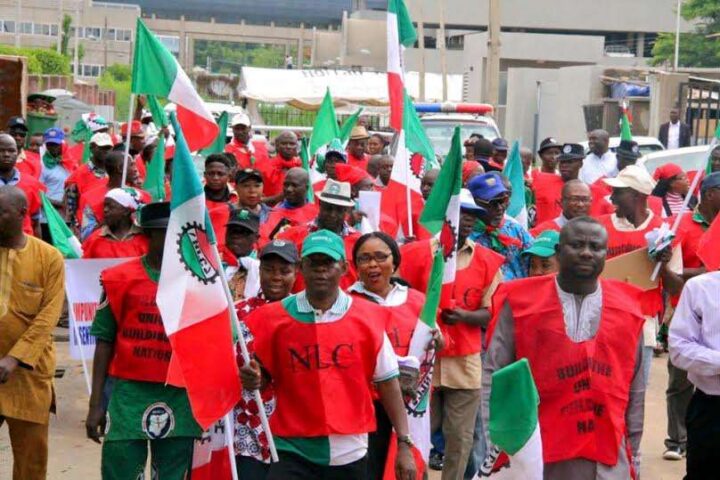It was a fiercely contested election, considering that the three major contenders are popular and well-known by the residents of Oyo state. At the end of the day, Seyi Makinde, the incumbent governor, roundly defeated Teslim Folarin of the All Progressives Congress (APC) and Adebayo Adelabu of the Accord Party.
Makinde secured an emphatic 563,756 votes to defeat Folarin, his closest challenger, who got 256,685 votes, while Adelabu came a distant third with 38,357 votes. Makinde recorded a convincing win with no razor-thin margin. The governor won 31 LGAs while Folarin took only two LGAs.
However, going into the election, it was uncertain who would carry the day, given that the APC won the February 25 presidential election in Oyo. Bola Tinubu, the President-elect, received his 4th highest votes of 449,884 in the state.
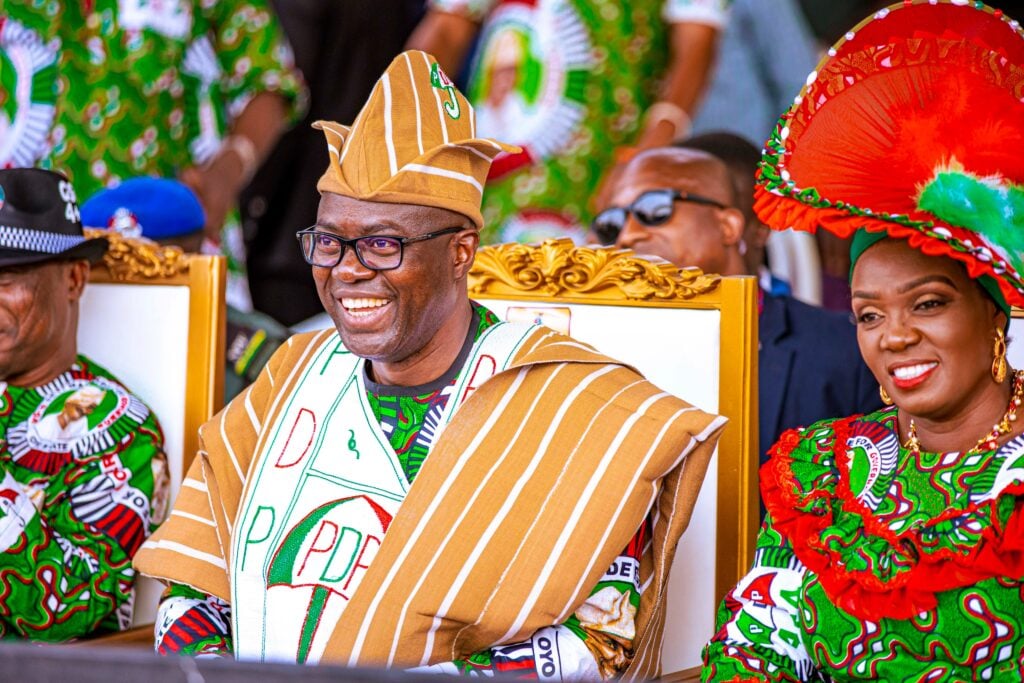
Some political pundits had projected that Makinde might lose the race to Folarin in light of Tinubu’s victory in the state. But an election can only be predicted based on current peculiarities. In what direction the poll eventually swings is ultimately decided by voters.
Advertisement
Days before the election, there were several threats against the governor’s reelection bid. The most significant of them was when Rashidi Ladoja, a former governor of the state, endorsed Folarin and led a last-ditch effort to rally support for him – just a few days before the poll.
Ladoja, who holds the title of Otun Olubadan, played a prominent role in the election of Makinde in 2019. He was governor of Oyo between 2003 and 2007 on the platform of the PDP. He moved to the Zenith Labour Party (ZLP) in 2018 and led a coalition of political parties to back Makinde’s governorship ambition in 2019.
Another albatross that hung on Makinde’s reelection bid was the dissenting voices of some disgruntled members of Oyo PDP who were said to be working against the governor over his G5 affiliation, which ultimately contributed to Atiku Abubakar’s defeat in the state.
Advertisement
The governor was also criticised by many Muslims in the state who vowed to work against his reelection following his decision to name a central mosque in Ibadan after himself. The governor later reversed the decision after several Muslim groups, including Muslim Rights Concern (MURIC), kicked against it.
So, all eyes were on Makinde after an abject defeat of three members of the G5 who were seeking to clinch senate seats in the national assembly. The chances looked slim. Will the governor break the misfortune suffered by his colleagues in the G5?
THE G5 DRAMA
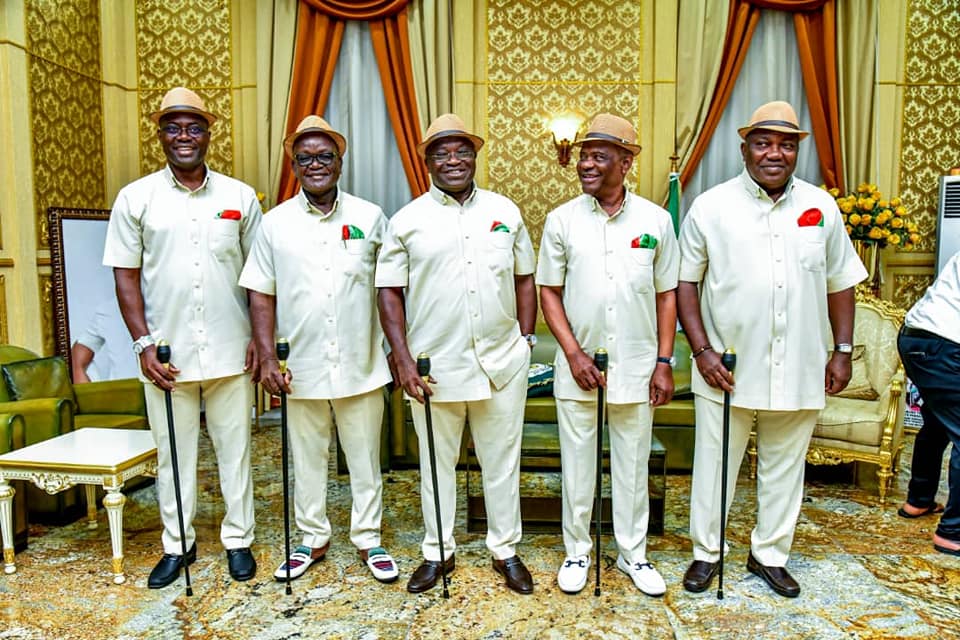
The G5 governors, carved from the Integrity Group of the PDP, became the centre of media attention in the party after Atiku won the party’s presidential primary election in 2022.
Advertisement
Prior to the primary election, there were demands by party stakeholders who formed the Integrity Group that the presidential ticket be zoned to the south in line with the rotation system in the party’s constitution. The agitation was further heightened since President Muhammadu Buhari, a northerner from Katsina, is in power and will soon complete his second term in office.
Following Atiku’s victory — the G5 governors made up of Nyesom Wike (Rivers), Makinde, Okezie Ikpeazu (Abia), Ifeanyi Ugwuanyi (Enugu) – demanded the resignation of Iyorchia Ayu as the national chairman of the party.
The governors based their argument on the premise that the party’s presidential candidate and chairman cannot hail from the same region. But Ayu stayed put and as a result, the G5 governors abstained from the PDP presidential campaign activities.
Although their precondition to supporting Abubakar was that Ayu should resign, insiders informed TheCable that the governors wouldn’t have backed the former vice-president even if the PDP chairman had relinquished his position — their grievance being that the party ditched zoning.
Advertisement
Wike had contested in the primary election but came second to Atiku. While Wike and Makinde were said to have secretly worked for Tinubu, Ortom on the other hand publicly endorsed Peter Obi, the presidential candidate of the Labour Party (LP).
MAKINDE BROKE G5’s ILL-LUCK
Advertisement
Makinde’s victory is akin to breaking the ill luck that befell the G5 in the aftermath of the presidential election. Apart from Wike, the four members of the G5 were contesting for elective offices in the general election.
Ikpeazu, Ortom and Ugwuanyi all failed in their bids to be elected to the senate. The triad would have joined the league of former governors who retired to the senate if they had succeeded in their senatorial ambitions.
Advertisement
Ugwuanyi was drowned by the LP tsunami propelled by the Obi movement that hit the PDP candidates in the south-east. The governor, who was seeking to represent Enugu north senatorial district, was defeated by Okechukwu Ezea of LP.
Ikpeazu was dealt a decisive blow by Enyinnaya Abaribe, the incumbent senator representing Abia south senatorial district. Abaribe, a former minority leader of the senate, was formerly a member of the PDP but defected to the All Progressive Grand Alliance (APGA) on whose platform he won reelection. He abandoned the PDP after he failed to secure the party’s governorship ticket.
Advertisement
After the defeat, Ikpeazu said he was not perturbed because he is a “fulfilled man” who has “won many battles”.
Ortom was the only G5 member from the north. His ambition to represent Benue north-west senatorial district was halted by Titus Zam of the APC. Zam was Ortom’s special adviser on bureau for local government and chieftaincy affairs from 2015 to 2017.
WILL G5 REMAIN RELEVANT IN PDP?
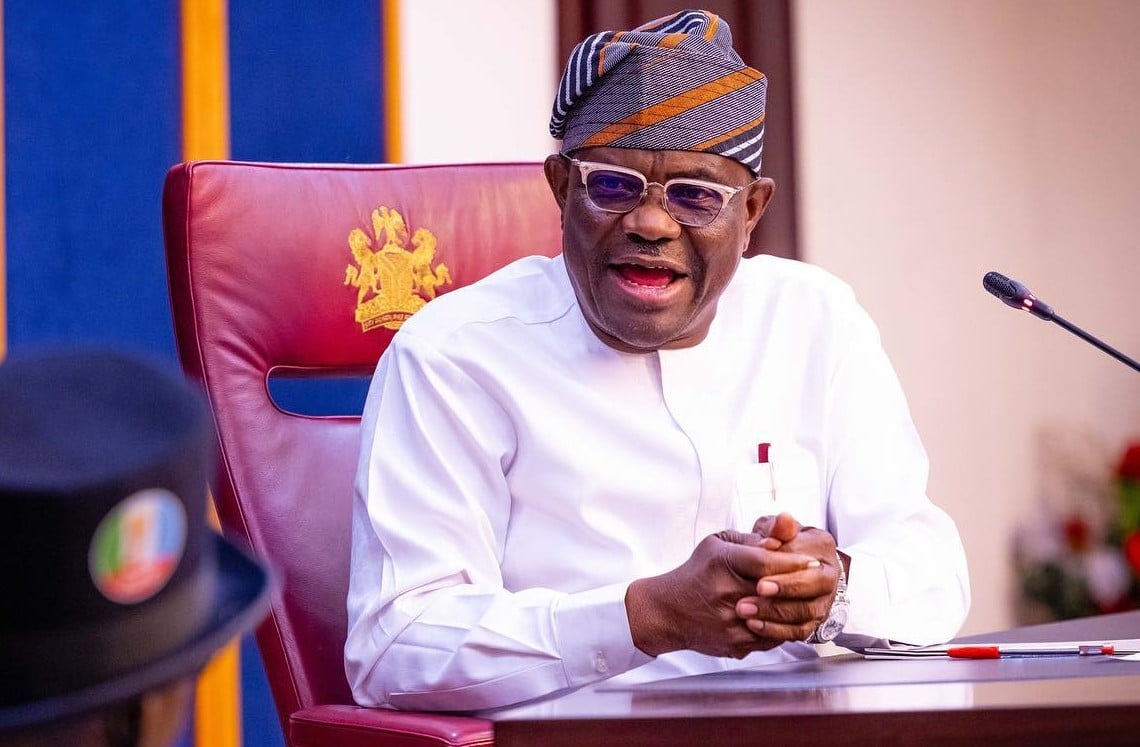
With the three governors in G5 losing their senatorial bids and with Makinde being the only member to hold an elective office, will the group remain influential in the opposition party?
The demand for zoning of the party’s presidential ticket to the south will continue to dominate conversations in the opposition party. So, one thing is sure. The G5, in support of other party stakeholders, will continue to pursue its zoning agenda.
In fact, speaking recently, Wike said members who violated the provisions of the PDP constitution on the zoning of elective offices would be shown the way out of the party.
The governor said he and “like minds” won’t leave the PDP, but stay to help rebuild it to become formidable.
“We have finished the first phase of the war. We are going (into) the second phase of the war,” he said.
“In the second phase of the war, we must chase out the buccaneers and vampires. We are going to chase them out of the party, take our party and rebuild it. These people left our party in 2014/2015 and our party lost the election. Again, they came back; our party lost again. They destroyed our party. We are going to chase them out of our party. They have no role to play in our party.”
The G5 decision not to back a northern candidate may have contributed to Atiku’s defeat, but it remains to be seen the extent of impact the group will exert on the PDP after May 29.
Add a comment
